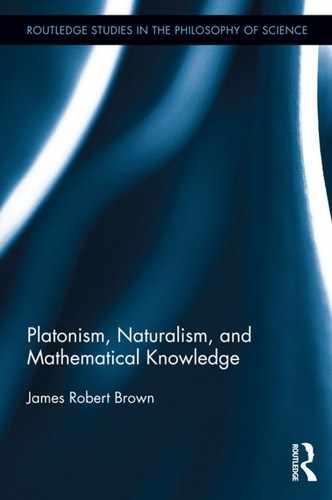Preface
To be natural is such a difficult pose to keep up.
—Oscar Wilde
Naturalism is on the march. In almost every philosophical outlet and every philosophical field, one encounters naturalist accounts of the subject matter at hand. Naturalism is a thriving research programme—at least it's thriving in the sense that it has abundant advocates who celebrate its ostensible achievements. Whether it's also thriving in the more important sense—making genuine progress—is quite another matter. It is as cheerfully accepted in some circles as postmodernism is cheerfully accepted in others. However, this book takes a dim view of its prospects and argues that naturalism is a mistake. I don't know if naturalism is wrong-headed about everything, but it is most certainly misguided about mathematics.
Of course, naturalism has much going for it—not least its name. Shakespeare was wrong about a few things, including nomenclature. If a rose were known as the fart flower, would any of us give it to a lover? Dare anyone object to the natural diet or to acting naturally? It's like objecting to nature itself. And who, after all, wants to be unnatural, especially since so many “unnatural acts” have delivered their perpetrators to the gallows or the fiery stake. Remember Sodom and Gomorrah—even supernatural God doesn't like unnatural acts.
But I suppose realists and constructivists have similarly benefited from a good choice of names—“Hey, I'm realistic and my advice is always constructive.” All of which shows that evidence, not etymology, must decide these issues. Of course, naturalists think they're in great shape when it comes to evidence, since they have all the testimony of natural science itself in support of their naturalism. Needless to say, I don't believe that for a minute. But I will allow that the burden is on me and other anti-naturalists to show otherwise. And that's what the bulk of this book is about: the case against mathematical naturalism. In particular, it makes the case against specific naturalists: Philip Kitcher, Willard Quine, Penelope Maddy (twice, since she has proposed two distinct naturalist views), George Lakoff, and others. Is it exhaustive? No. But I hope a sufficiently diverse sample has been covered to lead to the plausible conclusion that any version of naturalism is likely hopeless.
This volume is mostly negative, but not completely so. From time to time a positive case will be made for naturalism's great rival, Platonism. There are other anti-naturalist outlooks besides Platonism, but they will be largely ignored. In any case, the main aim is to show how very unsatisfactory naturalism is. If Platonism looks good by comparison, so much the better.
Finally, a word about the audience. I have many different ones in mind. Of course, philosophers of mathematics form one audience, and philosophers and others with an interest in naturalism are another. I also want this book to be of interest to professional mathematicians and to scientists who make significant use of mathematics. They often have a serious interest in the foundations of their subject. And finally, I hope the general public will find the book of interest, as well. To this end, I hope each group will indulge me when I spend time explaining things to others that are commonplaces to the cognoscenti. One of the most terrible things that can happen to any field is to be cut off from the rest of society and especially from the other branches of learning. Professional philosophy is in constant danger of estrangement, and philosophy of mathematics in recent years is particularly susceptible to this isolation and inbreeding. I'm happy to abandon the streamlined elegance of a purebred book for a robust mongrel—if it's widely read.
